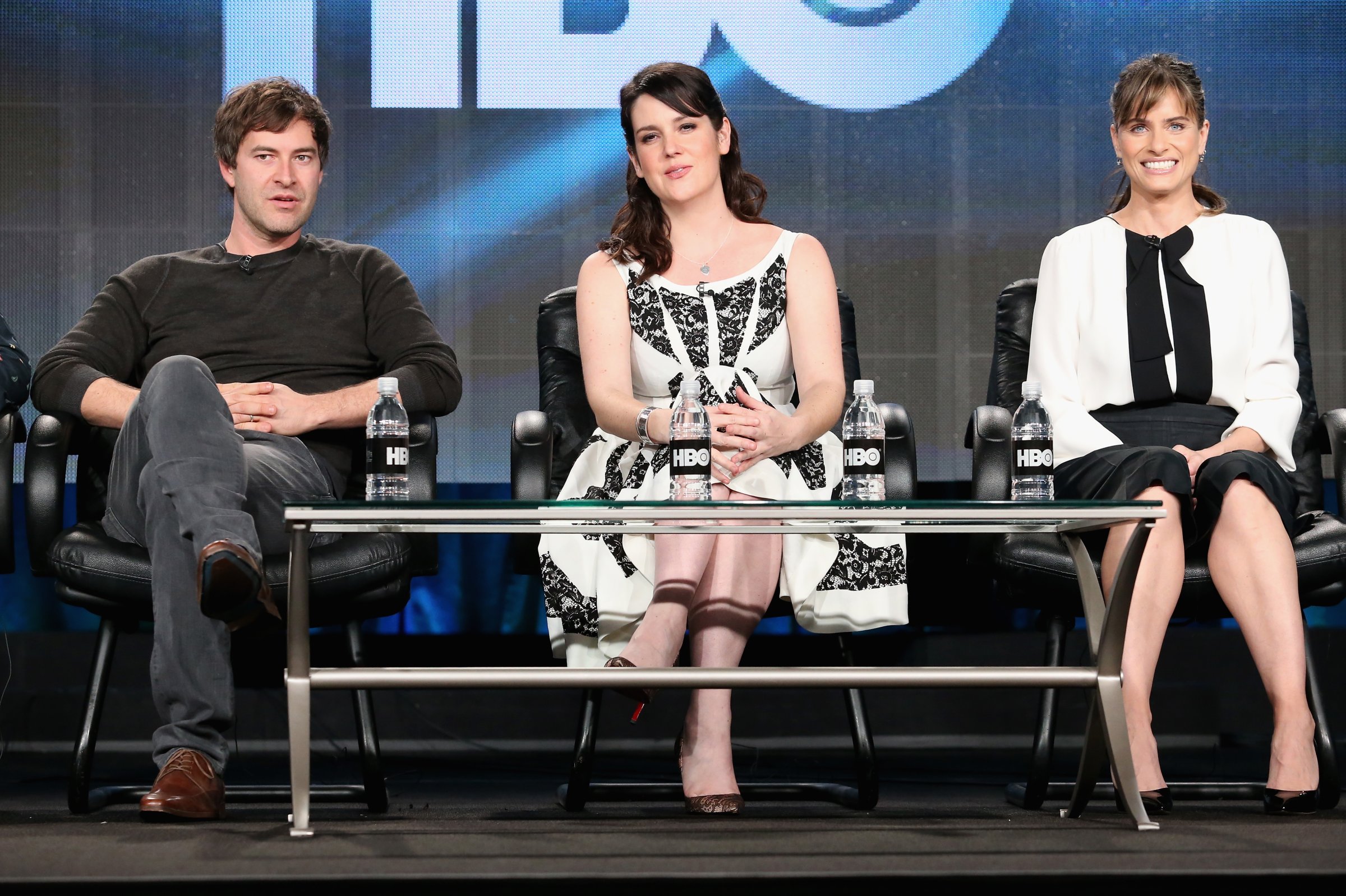
Togetherness didn’t quite end with a bang on Sunday night. But its unexpected series finale pulled together (as it were) the very best of what made the family drama work.
The low-fi HBO series, one among many component parts of the Mark and Jay Duplass creative empire, was cancelled by the pay-cable network midway through its now-concluded second season. Like beloved-but-little-watched HBO series Enlightened and Looking, Togetherness ended with an episode not meant to be its series finale. And like both of those series, Togetherness was searching enough, to the very end, to ensure that just about any of its episodes could have been a series finale. Its characters’ stories go on, even if they’re not onscreen.
There was some closure to be had: the show, satisfyingly enough, brought to a conclusion the long-running plotline about Michelle’s (Melanie Lynskey) desire to start a functioning charter school. She and the members of her extended family put on a staging of an alien drama (based in some part on a stage adaptation of Dune planned by the show’s adult men, but all too easily remade for the children they really were at heart) in order to convince chic L.A. parents to put their energies behind Michelle’s vision.
But the dark and delightful ironies of Togetherness remain to be chewed on. First of all, Michelle had no real vision; she’d only gotten involved in charter-school planning as a way to channel her restless energies, and had only continued to spite one of her enemies who, not coincidentally, actually had a real, if unappealing, educational ethos. Michelle’s school could have been a huge success — it could also, without the consistent and reliable aid of every other character on the show, who helped her put together her presentation, have been a swift and little-mourned failure.
The fact that Togetherness ends now allows us to hold both possibilities in our minds — the perfect conclusion for a show that thrived on precariousness. The closures the show’s final episode gave us — a reunion for Michelle and her husband, a long-delayed sexual union between flighty Tina and grounded Alex — lack finality, because we know just how flaky these characters are.
It’s not because I don’t trust the show’s storytelling that I doubt the sticking power of these developments — it’s because I do. There’s little reason to believe that Tina (played brilliantly over two seasons by Amanda Peet) has evolved quite enough to accept a new relationship with zero hiccups along the way. Her journey towards knowing what she wants has been satisfying, but this isn’t the last stop. We just won’t be able to see the faultlines created by the insecurities Peet has so beautifully drawn. The same is true for Michelle’s marriage, which reconciles itself at the series’s end; why shouldn’t it fall apart again? The calm, underdone mastery of Togetherness has allowed us to feel as though we were watching a normal period in these people’s lives; there was none of the high dudgeon that would normally accompany pivotal life moments, even though the show depicted real upheaval. If chaos is just status quo for Michelle and husband Brett, it’ll surely happen again.
We just won’t be there to see it. But leaving us wondering, rather than explaining endlessly, allows Togetherness to grow in memory as an unusually subtle show about adult relationships. It’s unfortunate that the characters aren’t going to go on from here, but it can only add to the show’s reputation that we were left at a point where recursive behavior was still riveting.
More Must-Reads from TIME
- Donald Trump Is TIME's 2024 Person of the Year
- Why We Chose Trump as Person of the Year
- Is Intermittent Fasting Good or Bad for You?
- The 100 Must-Read Books of 2024
- The 20 Best Christmas TV Episodes
- Column: If Optimism Feels Ridiculous Now, Try Hope
- The Future of Climate Action Is Trade Policy
- Merle Bombardieri Is Helping People Make the Baby Decision
Contact us at letters@time.com